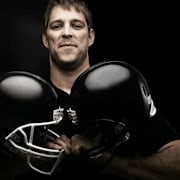Building the Foundations of Strength Training

Training is both art and science, and finding the right tools and approaches can unlock an athlete’s true potential. On Power Athlete Radio, Arash and myself dive into how foundational movements and innovative tools like the kettlebell can elevate performance. From teaching the basics of movement to discovering the nuances of task-specific tension, this conversation sheds light on practical approaches for coaches and athletes alike.
For athletes just starting out, it’s crucial to build a solid foundation of movement patterns. I emphasize the importance of teaching fundamental movements like the squat, step, and lunge. These are the building blocks of athletic performance, developing strength, stability, and coordination. Bodyweight exercises like pull-ups and push-ups are another essential component, offering scalable ways to build strength and control. By focusing on these movements early, athletes establish the motor patterns and resilience needed for more complex or dynamic training later. Or you can follow Power Athlete’s Bedrock where I program it for you.
When it comes to tools, the kettlebell often sparks debate. I initially had skepticism when I first encountered kettlebell swings, finding them unimpressive compared to the Olympic lifts I was accustomed to. Movements like the snatch pull or clean pull focus on explosive, vertical hip extension, which directly translates to athletic power. In contrast, the kettlebell swing initially seemed like an unnecessary alternative, lacking the precision and purpose of these traditional lifts. However, my perspective shifted dramatically when he encountered the kettlebell in a CrossFit context.
CrossFit’s use of the kettlebell as a conditioning tool brought a new dimension to its utility. Instead of viewing the swing solely as a strength movement, I discovered how it could be used for high-repetition conditioning workouts - an entirely different application than what he had previously considered. Through grueling kettlebell sessions, I developed an appreciation for what he calls “task-specific tension.” This concept refers to the ability to create and release tension in the body as needed, which is critical for both athletic performance and efficiency.
To understand task-specific tension, think about throwing a punch. A good punch isn’t rigid throughout the motion; it starts loose and relaxed, generating speed and fluidity, before tightening at the moment of impact to deliver maximum force. Kettlebell swings, performed repetitively and under fatigue, mimic this dynamic. The athlete learns to generate tension during the explosive hip extension phase of the swing and relax during the downswing, creating a rhythm that optimizes power output while managing energy expenditure. This is a skill that applies far beyond kettlebells, transferring to everything from Olympic lifting to sprinting and even combat sports.
Ultimately, the kettlebell swing proved to be more than just a conditioning tool; it became a bridge between strength and endurance, power and precision. For athletes looking to optimize performance, it’s a reminder that versatility and open-mindedness in training can uncover unexpected benefits. By mastering foundational movements, incorporating diverse tools like the kettlebell, and honing skills like task-specific tension, athletes can unlock new levels of performance and efficiency in their training.
